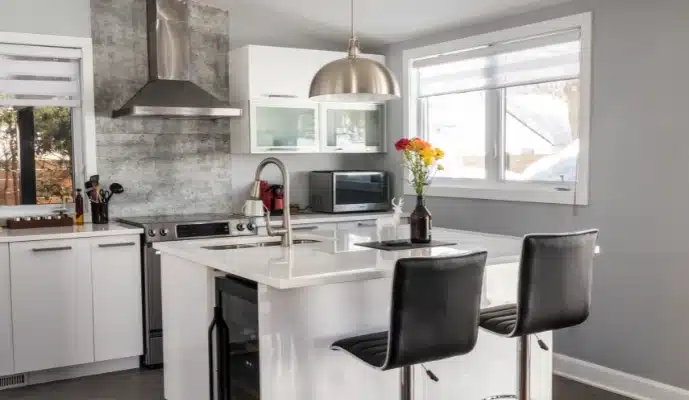Understanding the Key Requirements for Sanibel Home Renovations
Sanibel Island is unique, both in its beauty and its regulations. The island enforces several stringent laws and regulations to protect its delicate ecosystem and ensure public safety. The Sanibel permitting process can be overwhelming, but understanding the following key points can make it easier.
1. Development and Building Permits
Before breaking ground on any renovation project, homeowners must first secure the appropriate development permit and building permit from Sanibel’s Building Department. These permits ensure that all work complies with both the Florida Building Code and local regulations.
The development permit is often required for projects that involve new construction or significant alterations to the landscape, including changes to both the paved areas and green spaces. Additionally, Sanibel’s regulations take into account the proximity to environmentally sensitive zones like the Gulf Beach Ridge zones, which protect coastal ecosystems.
On the other hand, the building permit is necessary for structural changes, whether you’re adding a new porch or roof overhang or making significant internal modifications to a dwelling unit. It’s essential to work with the Planning Department to ensure that your project aligns with Sanibel’s land development code.
Sanibel Island is governed by special laws related to coastal construction, given its location along the Gulf of Mexico. The coastal construction control line plays a crucial role in determining where building activities can occur. Projects within this zone require additional scrutiny and must meet strict environmental standards.
2. Marine Turtle Lighting Standards
One key regulation to be aware of involves lighting, especially if your project is near the coastline. Sanibel enforces marine turtle lighting standards, which protect nesting sea turtles. For any outdoor remodel, the use of newly installed lighting fixtures must comply with these standards. Minimizing light pollution is critical, so homeowners should consider motion-detected security lighting and low-impact designs when making outdoor lighting purchases.
3. Emergency Permit Procedures and Trade Permits
During an unexpected situation like a storm or hurricane, Sanibel has streamlined emergency permit procedures to help homeowners quickly secure an emergency building alteration permit. These permits allow for immediate action to prevent further damage. In such cases, you may also need separate emergency trade permits for specialized work, such as electrical or plumbing repairs.
Make sure you have emergency permit forms found through the Sanibel city website, so you’re prepared in advance.
Sanibel requires all renovation projects to have detailed construction drawings prepared and submitted as part of the application for a building permit. These drawings must demonstrate compliance with the Florida Building Code requirements and local safety standards, such as those related to pool safety. Ensuring your renovation includes an approved safety pool plan is vital, especially if your home is near a high-traffic area or a body of water.
4. Outdoor Lighting Regulations and Safety Concerns
Outdoor lighting is another significant aspect of Sanibel’s renovation laws. Any changes to exterior lighting must comply with outdoor lighting standards set by the city. The building department evaluates outdoor lighting to ensure it meets energy efficiency requirements, minimizes glare, and prevents unnecessary light pollution.
When planning to replace outdoor lights, keep in mind the island’s strict enforcement of these standards, particularly around protected zones like the Gulf Beach Ridge. Consider using eco-friendly and compliant exterior light fixtures that align with the island’s environmental goals.
5. Flood and Drainage Plans
Because of Sanibel’s coastal location, flood mitigation plays a crucial role in renovation projects. Any modification that affects the drainage around your property must comply with an existing approved drainage plan. Ensuring proper water management not only helps protect your property but also the surrounding environment. If your renovation alters the landscape, consult with the Planning Department to ensure that your changes are in line with flood zone regulations and won’t disrupt local ecosystems.
Navigating the Sanibel Permitting Process
When planning a renovation on Sanibel Island, understanding the local permitting process is crucial. In most cases, obtaining a development permit and building permit is mandatory. You’ll need to submit your detailed construction drawings to the Building Department, outlining every aspect of your project and its compliance with the Florida Building Code.
Additionally, if your renovation requires changes to the landscape, such as modifying vegetation or adding outdoor structures, you may need an accessory development permit. This ensures that all changes adhere to local environmental regulations, including the protection of appropriate beach dune species.
Emergency Permits and Storm Preparation
For Sanibel residents, hurricanes and tropical storms are a common concern. Fortunately, Sanibel has a process for issuing emergency permits in the aftermath of severe weather events. These permits allow for immediate repairs, such as replacing damaged outdoor lighting or securing structures that have been compromised.
In case of an emergency, be sure to complete the necessary emergency permit forms and apply through the appropriate channels to avoid any legal repercussions later.
Lighting Regulations: Protecting the Night Sky and Wildlife
Sanibel has some of the strictest outdoor lighting laws in Florida, especially concerning wildlife preservation. Motion-detected security lighting and shielded fixtures are encouraged to minimize light pollution. When making outdoor lighting purchases, homeowners must ensure their choices meet local standards, including protecting turtle nesting areas.
Remodeling by Fresh Start Services
Fresh Start Services specializes in helping Sanibel homeowners navigate these challenges with ease. Our team is experienced in the local permitting processes and understands how to ensure your renovation meets all requirements, including outdoor lighting standards, flood zone regulations, and more. Contact us today to start your renovation project with confidence, knowing you’re in good hands.

